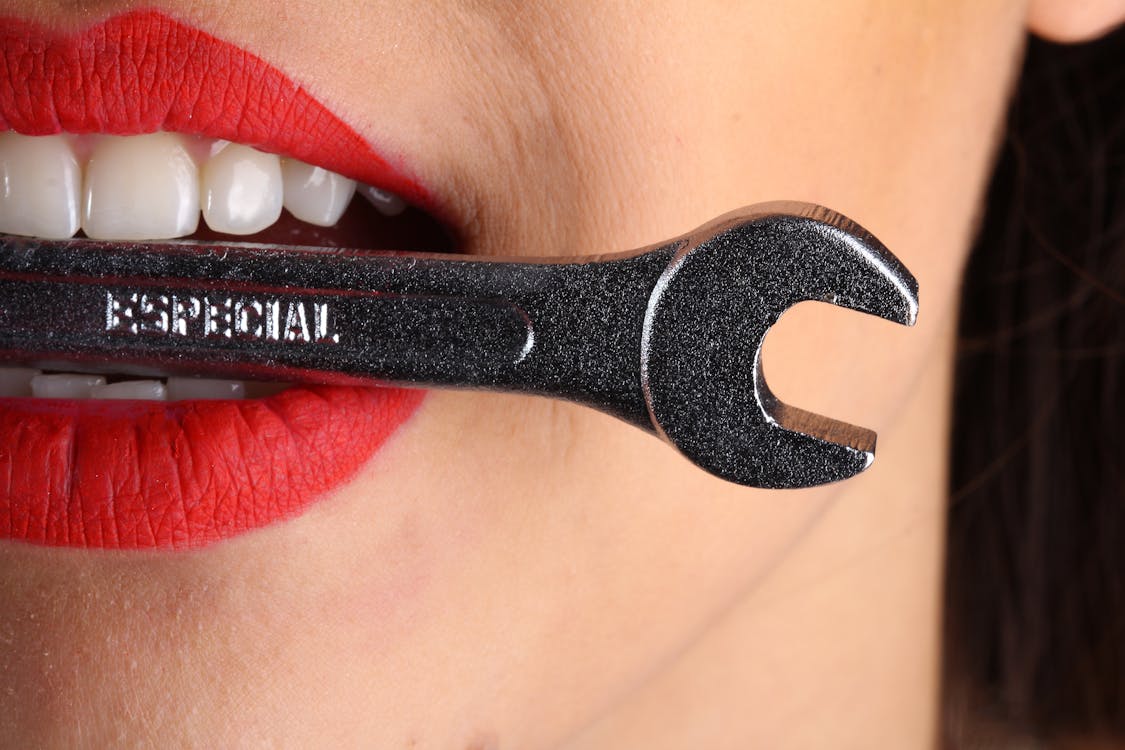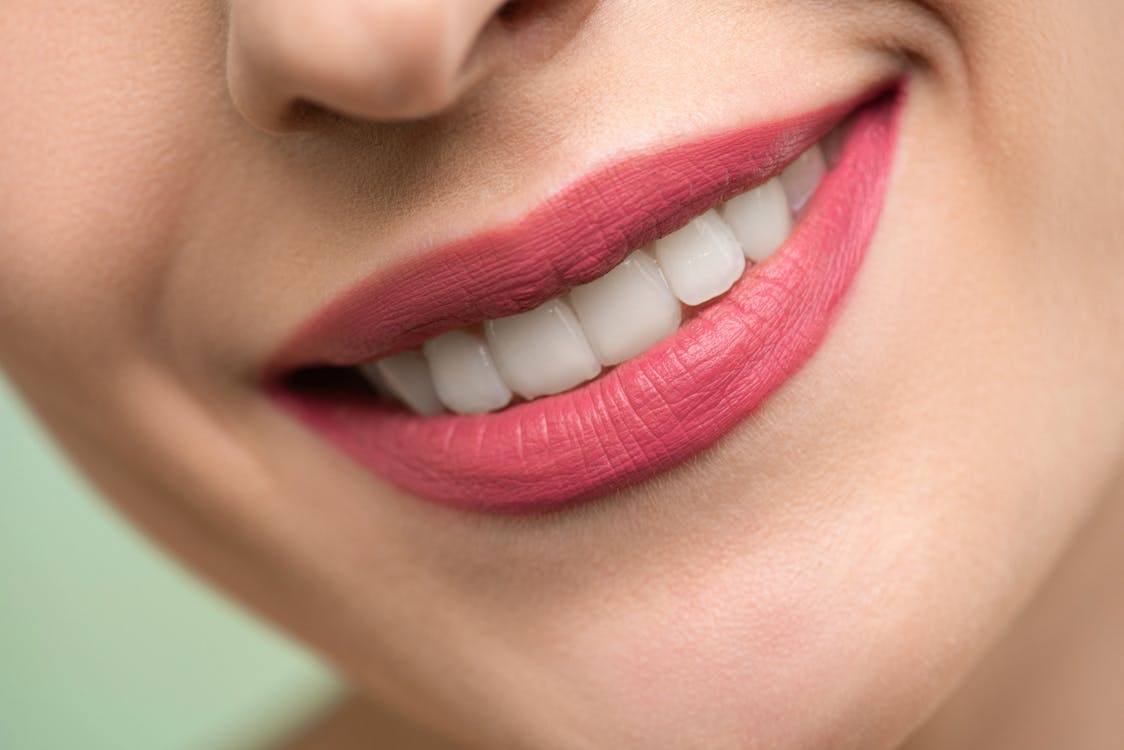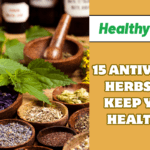10 Ways to Whiten your Teeth easily
1. Brush with Baking Soda to whiten your teeth easily:
Baking soda, or sodium bicarbonate, is a mild abrasive that can help remove surface stains on teeth.
It also creates an alkaline environment in your mouth, which can help prevent bacteria growth.
Simply mix a small amount of baking soda with water to form a paste, then brush your teeth with it once a week.
Incorporating baking soda into your oral hygiene routine can help maintain a bright and healthy smile.
Its gentle abrasive properties help scrub away surface stains caused by coffee, tea, and other foods and drinks.
Read Also:
Focus While Studying: 10 Proven Methods
2. Use Hydrogen Peroxide to whiten your teeth:
Hydrogen peroxide is a common household ingredient that can be used to whiten teeth.
It works by breaking down the compounds that cause stains on teeth.
You can use a 1.5% or 3% hydrogen peroxide solution as a mouthwash, swishing it around in your mouth for about a minute before spitting it out.
Alternatively, you can mix hydrogen peroxide with baking soda to create a whitening paste.
It’s important not to swallow hydrogen peroxide and to use it in moderation.
3. Oil Pulling is a practice that helps in teeth whitening:
Oil pulling is an ancient practice that involves swishing oil around in your mouth to remove bacteria and plaque.
Some people believe that it can also help in teeth whitening, although scientific evidence is limited.
To try oil pulling, swish a tablespoon of coconut, sesame, or sunflower oil in your mouth for 15-20 minutes, then spit it out and rinse your mouth with water.
Incorporating oil pulling into your oral hygiene routine can help improve oral health by reducing bacteria and plaque buildup.
The antimicrobial properties of certain oils, such as coconut and sesame oil, may help kill harmful bacteria in the mouth.
4. Eat Crunchy Fruits and Vegetables to easily whiten your teeth:
Crunchy fruits and vegetables like apples, carrots, and celery can help whiten teeth by scrubbing away plaque and surface stains.
They also stimulate saliva production, which can help in neutralising acids in the mouth and prevent tooth decay.
Many crunchy fruits and vegetables are rich in antioxidants, which can help protect teeth and gums from damage caused by free radicals.
Antioxidants like vitamin C and beta-carotene can also help reduce inflammation in the mouth and promote healing.
In addition to their abrasive effect, crunchy fruits and vegetables also stimulate saliva production in the mouth.

Read Also:
11 Best Ways to Improve Your Digestion
5. Limiting Staining Foods and Beverages helps in teeth whitening:
Limiting staining foods and beverages is an essential step in maintaining whiter teeth.
Certain foods and drinks, such as coffee, tea, red wine, berries, and tomatoes, contain chromogens that can bind to tooth enamel and cause discoloration.
When consumed regularly, these substances can lead to yellowing or browning of teeth, dark spots or stains, and uneven tooth color.
To minimize the impact of staining foods and beverages on teeth, it’s essential to take a few precautions.
Drinking coffee and tea through a straw can reduce contact with teeth, while rinsing the mouth with water after consuming staining foods and beverages can help neutralize their effects.
6. Drink Water to avoid staining of teeth:
Drinking water after consuming staining foods and beverages can help wash away residue and reduce the likelihood of staining.
It also helps keep your mouth hydrated and promotes saliva production, which is important for maintaining healthy teeth and gums.
Incorporating water into your daily routine can contribute to better oral health and prevent staining caused by foods and drinks such as coffee, tea, and red wine.
Water acts as a natural cleanser, rinsing away food particles and residue that can linger on teeth and contribute to staining.
Additionally, staying hydrated is essential for saliva production, which plays a crucial role in protecting teeth and gums from bacteria and decay.
7. Use Whitening Toothpaste to whiten your teeth easily:
Whitening toothpaste contains abrasive particles or chemicals that help remove surface stains on teeth.
While they may not dramatically whiten your teeth, they can help maintain a brighter smile. Use whitening toothpaste regularly as part of your oral hygiene routine.
Incorporating whitening toothpaste into your daily oral care regimen can help prevent the buildup of surface stains caused by foods, beverages, and tobacco products.
The abrasive particles or chemicals in whitening toothpaste work to gently polish away stains, revealing a brighter and cleaner appearance.
While whitening toothpaste is not as effective as professional whitening treatments, it can be a convenient and affordable option for maintaining a healthy and radiant smile.
8. Avoid Tobacco Products to avoid teeth staining:
Tobacco products, including cigarettes and chewing tobacco, can stain teeth and contribute to oral health problems. Avoiding these products can help keep your teeth white and your mouth healthy.
Incorporating tobacco products into your lifestyle can have significant negative effects on your oral health and overall well-being.
The tar and nicotine found in cigarettes can lead to yellowing and discoloration of teeth over time, as well as contribute to bad breath and gum disease.
Chewing tobacco, often referred to as smokeless tobacco, can also cause tooth discoloration and increase the risk of oral cancer, gum disease, and tooth loss.
By avoiding tobacco products altogether, you can protect your teeth from staining and reduce the risk of developing serious oral health issues.
9. Visit Your Dentist Regularly to keep your teeth in good condition:
Regular dental check-ups and cleanings are crucial for maintaining good oral health and a bright smile.
During a routine dental visit, your dentist can remove plaque and tartar buildup, which can contribute to tooth discoloration, and identify and treat any oral health issues, such as cavities or gum disease, before they become more serious.
Your dentist can also provide personalized advice on how to improve your oral hygiene habits and offer professional teeth whitening treatments for more enhanced results.
By visiting your dentist regularly, you can prevent oral health problems from developing, catch any issues early, and maintain a healthy, bright smile.
Regular dental visits can also help identify any underlying health issues, such as vitamin deficiencies or systemic diseases, that may be affecting your oral health.
Read Also:
Best Exercises And Yoga Poses For A Healthy Lifestyle
10. Maintain Good Oral Hygiene to prevent stained teeth:
Regular dental check-ups and cleanings are important for maintaining good oral health and a bright smile.
Your dentist can remove plaque and tartar buildup, which contributes to tooth discoloration. They can also offer professional whitening treatments for more enhanced results.
Incorporating regular dental visits into your oral care routine is essential for preventing dental problems and maintaining a healthy smile.
During a dental cleaning, your dentist or dental hygienist will use specialized tools to remove plaque and tartar from your teeth and gums.
This helps prevent cavities, gum disease, and tooth discoloration, keeping your smile bright and your mouth healthy.




